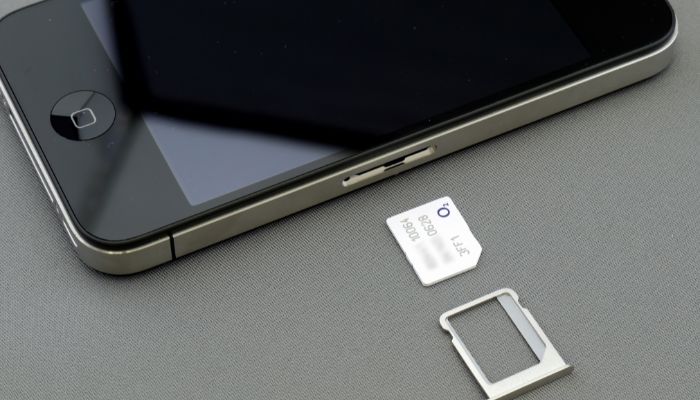
No, a SIM card cannot be tracked when not inserted in a phone, similar to tracking a dead phone. SIM cards hold user information and assist in communication with the mobile network, but their tracking capability is contingent upon a device’s connectivity to that network. When out of a phone, the SIM card lacks necessary components for location tracing such as GPS, signal triangulation, and internet access. However, once reinserted into a device, the location data can be refreshed.
Understanding technological functionalities and legal implications can demystify misconceptions surrounding SIM tracking and lead to a comprehensive perspective on this subject.
Understanding SIM Card Basics
To fully grasp the concept of SIM card tracking, it is essential to first understand the basic functionality and purpose of a SIM card in a mobile device. The Subscriber Identity Module (SIM), a small chip placed inside the phone, serves as the heart of any mobile device. It stores user information, facilitates communication with the mobile network, and enables remote tracking.
The SIM card’s offline capabilities are a crucial aspect of its functionality. Even when a device is switched off, the SIM card retains its data, making it possible for location services to trace the last known position, just as you can track phone location using Google Maps. This feature, coupled with the ability to remotely track the device, brings an added layer of security measures.
Moreover, SIM cards are equipped with data encryption capabilities, protecting user information from being intercepted or misused. This encryption is critical for maintaining the privacy and security of user data, further enhancing its role in device tracking.
The Technology Behind Tracking

Delving into the technology behind tracking, one discovers a complex interplay of systems that enable location detection and data transmission. GPS technology plays a crucial role in this process, providing precise geolocation data that is often critical for tracking a device. Satellite tracking enhances the accuracy of the GPS system by continually monitoring and adjusting the data.
Signal triangulation is another key component of this technology. By assessing the strength and direction of the signal from multiple sources, it’s possible to pinpoint the exact location of a device. This technique is especially useful when GPS data is unavailable or unreliable.
In terms of data transmission, remote access is a vital tool. It allows for real-time tracking and management of a device, regardless of its physical location. Meanwhile, data encryption ensures protection of this sensitive information during transmission, reducing the risk of interference or unauthorized access.
Each element of this technology plays a unique role in the tracking process, working together to provide accurate, reliable, and secure location data. It is through this complex and sophisticated technological interplay that tracking a SIM card, whether in a device or not, becomes a possibility.
Limitations of SIM Card Tracking
Despite the advanced technology behind tracking systems, the ability to track a SIM card when not in a phone presents several significant limitations.
The first constraint involves remote monitoring. When a SIM card is not inside a phone, tracking becomes more difficult as there is no device to send location information. This limitation can hinder the use of SIM card tracking in emergency situations where locating the individual quickly is a matter of life and death.
Legal restrictions also pose a challenge. Privacy laws often prevent unauthorized tracking of SIM cards, making it legally complex to use this technology without explicit consent. Violations can lead to severe penalties, including heavy fines and imprisonment.
Battery consumption is another issue. Tracking a SIM card can consume significant energy, reducing the phone’s battery life and making it less reliable in emergencies.
Misconceptions About SIM Tracking
Many misconceptions surround the topic of SIM card tracking, leading to both overestimations and underestimations of its capabilities. The first major misconception is the belief in absolute tracking accuracy. SIM tracking is a complex process influenced by several factors such as network coverage and geographical location. A lack of network signal or being located in a remote area can make tracking less accurate.
The second misconception pertains to data storage. While SIM cards do store some user data, they don’t hold the extensive amount of information that many believe. In reality, most personal data is stored on the phone itself or within cloud-based services.
Lastly, people often misunderstand the legal implications of SIM card tracking. It’s not as freely used as many assume, especially in non-emergency situations. Legal permissions are often required for tracking, making it less common than perceived.
- Misconception 1: Overestimating tracking accuracy due to ignorance about the influence of network coverage and geographical location.
- Misconception 2: Believing SIM cards store extensive personal data when most information is actually stored on the phone or in the cloud.
- Misconception 3: Misunderstanding the legal implications and limitations of SIM card tracking, especially in non-emergency situations.
Privacy Concerns and Precautions

Given these prevalent misconceptions about SIM card tracking, it becomes increasingly important to address the associated privacy concerns and precautions one should take. At the forefront are legal implications. Although it’s technically possible to track a SIM, it’s illegal without user consent in many jurisdictions. This is to protect individuals from unwarranted surveillance and ensure their privacy rights are respected.
Location accuracy is another concern. Even with user consent, it’s important to remember that SIM tracking isn’t always precise. It depends on several factors including signal strength and proximity to cell towers. Misinterpretation of this information can lead to false conclusions about a person’s activities or whereabouts.
Data security is paramount in SIM tracking. Without stringent security measures, sensitive data transmitted through SIM cards could be vulnerable to remote access by malicious entities. Thus, it’s crucial to use encryption and other protective measures.
Lastly, user consent is a significant factor. Consent must be fully informed and freely given. It’s unethical and often illegal to track a SIM without the user’s explicit agreement. Thus, one should always be aware of the permissions they grant to their service providers and other entities.
Future Trends in SIM Tracking

As technology continues to advance, we can anticipate several emerging trends in the realm of SIM tracking.
Future developments are expected to focus on:
- Remote monitoring: SIM tracking technology will enable real-time tracking and remote monitoring of devices. This will provide continuous updates regarding the device’s location, enhancing tracking frequency.
- Location accuracy: With the integration of more advanced GPS technologies, the accuracy of location tracking will improve significantly. This will be beneficial for several applications, from logistics to security.
- Data security: As the internet of things (IoT) expands, ensuring data security will become a priority. Efforts will be directed towards developing SIM tracking solutions that offer robust security features to protect user data.
Furthermore, network compatibility will also be a critical aspect of future SIM tracking technology. As we move towards a more interconnected world, ensuring that SIM tracking technology is compatible with various network types will be essential. This will allow for seamless tracking across different network platforms and geographical locations, further enhancing the usability and efficiency of SIM tracking solutions.
In a nutshell, the future of SIM tracking is geared towards offering more precise, secure, and versatile solutions.
Conclusion
The ability to track a SIM card when not inserted in a phone is largely theoretical and limited by current technology. Misconceptions often arise due to the complexities associated with the technology.
While privacy concerns are valid, necessary precautions can minimize risks. As technology continues to evolve, so too will the capabilities for SIM card tracking, warranting continued vigilance in the protection of personal information.
FAQs Section
What happens if someone takes out my SIM card and uses it in another phone?
If someone takes your SIM card and uses it in another phone, they can access your mobile network and use your phone number. They might make calls, send texts, or use your data plan. However, they won’t have access to any data stored on your phone itself, like apps or photos. If you notice unauthorized activity, contact your mobile provider immediately to block the SIM card and prevent further misuse.
Is it possible to track a lost phone using only the SIM card number?
Tracking a lost phone using only the SIM card number is limited. Since the SIM card doesn’t have GPS, it can’t provide a location. However, if the SIM card is in a phone that is turned on and connected to a network, your mobile provider can help track the phone through cell towers using the SIM card. For more accurate tracking, use tools like “Find My Device” for Android or “Find My iPhone” for iOS.
How can I protect my SIM card from being tracked?
To protect your SIM card from being tracked, keep your phone’s security settings up to date. Use strong passwords or biometric locks to secure your device. Turn off location services when not needed, and be careful about which apps you allow to access your location. If you’re not using your SIM card, store it in a safe place or consider using a signal-blocking case to prevent tracking.
Are there legal consequences for tracking someone’s SIM card without permission?
Yes, tracking someone’s SIM card without their permission is illegal in many places. Unauthorized tracking can invade someone’s privacy and lead to serious legal issues. If caught, you could face fines or even jail time, depending on the laws in your country. Always get consent before tracking someone’s device, and make sure you’re following the law to avoid any legal trouble.